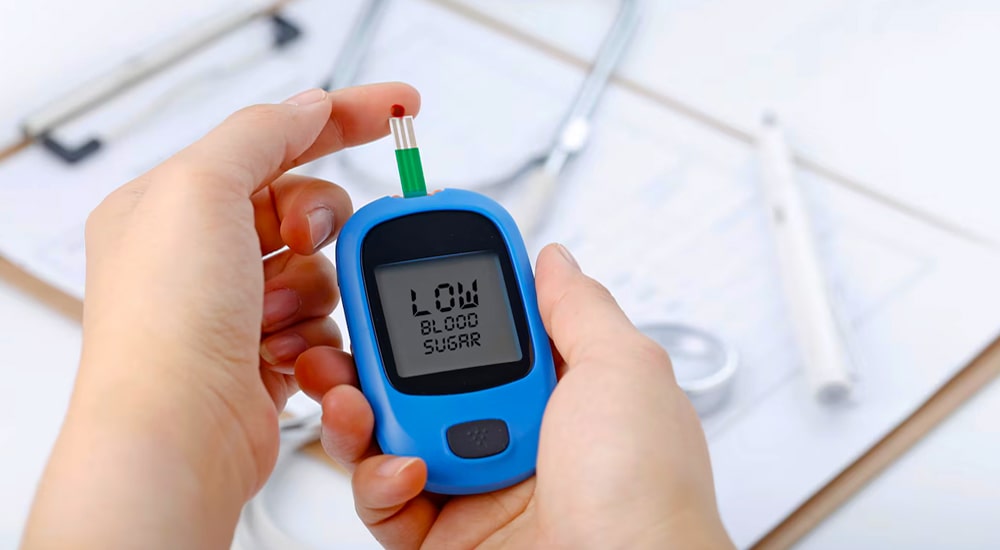
Usually, diabetic people may experience low blood sugar levels. However, people without diabetes may also experience low blood sugar levels, which is called hypoglycemia. This condition can occur if you have a severe infection, or take certain medication. You have to treat hypoglycemia by consuming carbohydrates as soon as possible because untreated hypoglycemia can be life-threatening.
What is hypoglycemia?
Hypoglycemia is a condition, in which your blood sugar levels drop below the normal range. Although hypoglycemia is common in people with type 1 diabetes, it can also occur in people who are not diabetic. People with hypoglycemia require immediate treatment by consuming carbohydrates or sugar. Severely low blood glucose levels can be life-threatening and require emergency medical care.
Low blood sugar is common in people with diabetes, especially those who take insulin. People with type 2 diabetes who take certain oral diabetic medications are also at risk of having low blood sugar levels.
What are the signs of hypoglycemia or low blood sugar?
Usually, the symptoms of low blood sugar appear quickly, but they may vary from person to person. An individual might experience different symptoms for each episode. The common symptoms include:
Signs of severely low blood sugar or severe hypoglycemia levels include:
What are the complications of hypoglycemia?
Persistent severe hypoglycemia can be life-threatening, and can lead to various complications:
Having severely low blood sugar levels, while driving a vehicle can be dangerous and lead to accidents. Therefore, if you have diabetes, make sure to manage your blood sugar levels before driving any vehicle.
What causes hypoglycemia?
There are a few types of hypoglycemia, and their common causes include:
1. Pregnancy
2. Eating disorder
3. Medications
4. Too much consumption of alcohol
5. Disorders affecting the heart, liver and kidneys
6. Hormone deficiency
What causes hypoglycemia in people without glycemia?
Various factors can cause hypoglycemia in people who do not have diabetes. The common causes of hypoglycemia in people without diabetes may include:
Hypoglycemia is a serious condition that requires immediate treatment. This condition occurs when the blood sugar levels drop down the healthy range. Although hypoglycemia occurs in people who have diabetes, it can also occur in people without diabetes. Untreated hypoglycemia can be life-threatening. For this reason, it is crucial to monitor your blood sugar level regularly to avoid unwanted health consequences.